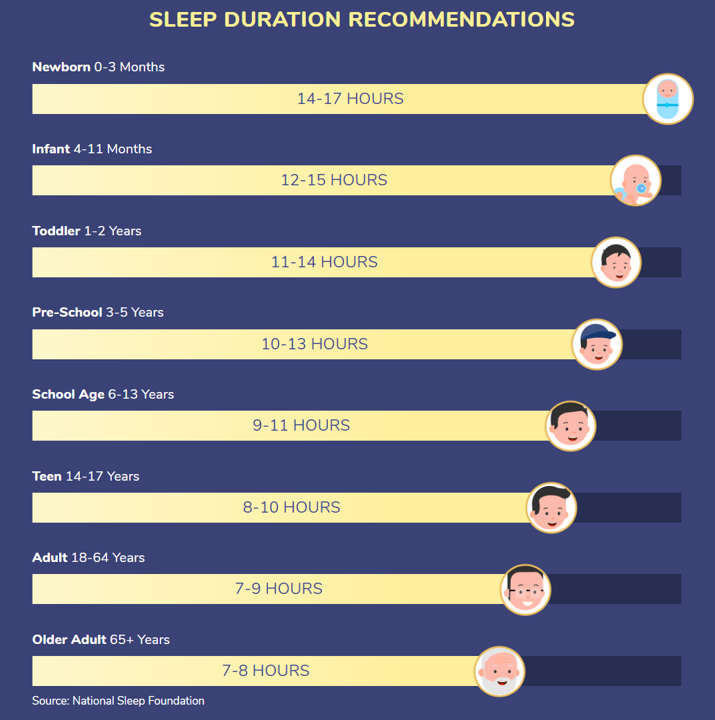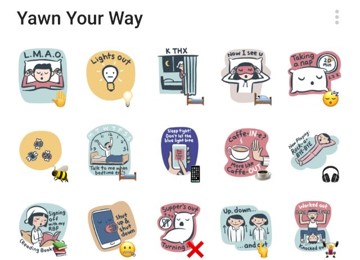The Importance of Sleep
Date: Wednesday, March 03, 2021Just how much should you be sleeping every day? Should you get a good night's sleep?
If you think that sleep is just a period of inactivity, think again. Our nightly shut-eye allows our brains to consolidate our learning and memory so we can perform tasks better the next day. When we have enough sleep, we are less likely to overeat and crave junk, and we make wiser food choices. We're burning fat more effectively and our factory of muscles is in full swing — burning up the calories we consume and the energy that's stored as fat in our bodies.
If you’ve ever been sleep deprived, you would have noticed your inability to concentrate, slow responses, impulsive decision-making and even felt easily annoyed or depressed. Not to forget those dark eye circles that refuse to budge.
Perhaps sleeping in on the weekends could make you feel better, but what’s lost is lost. Two days of better rest cannot compensate for a week’s worth of impaired performance.
Related: Sleep Well, Live Better
What is considered good sleep?
The quantity and quality of sleep determine whether you wake up feeling energized or like a walking zombie.
Related: Are You Getting Quality Sleep?
Do's
Sleep for At Least 7 Hours Daily
Depending on your age, the optimal sleep duration varies. If you are above 18 years old, strive to get at least 7 hours of sleep. See the recommended sleep duration for different age groups below.

Have a Short Nap for Some Energy Booster
Taking a 20-minute nap in the afternoon can help recharge your energy level and boost your daytime productivity. Make sure to time it right, taking a nap too close to bedtime can interrupt your night time sleep.
Get Active
Exercise regularly as physical activity can help you sleep better.
Relax your Muscles
Release the tension in your body after a long day at work or school.
Try some simple muscle relaxation exercises here.
Follow a Bedtime Routine
Wind down from the chaos of the day by calming your senses. Grab a book, take a warm bath, or listen to some soothing music. A consistent routine can signal your body to sleep at the same time daily.
Related: Sleep Deprivation
Listen to Relaxing Music
Relaxing music can calm your mind and cue your body for some shuteye.
Turn on Blue Light Filter
The night mode function filters out blue light, which inhibits your brain from producing sleep-inducing hormones.
Keep your Sleep Environment Comfortable
Dim or switch off the lights in your room - consider using blackout curtains or eye masks to help block out external lights. Don'ts
Avoid Starving or Heavy Meals Before Sleep
It’s hard to sleep when your stomach is rumbling or gorged. Eat a couple of hours before sleep, or have a glass of milk before heading to bed. A big dinner may cause discomfort, keeping us wide awake. Also, avoid satiating hunger pangs before bed with large meals. Instead, have a light and healthy snack like low-fat yoghurt, a cup of milk, or a serving of fruit.
Avoid Caffeine or Alcohol Before Bedtime
There's a reason why we drink coffee in the morning – it is a stimulant which promotes wakefulness. While alcohol may make you drowsy, it impacts the quality of your sleep.
Avoid Using Electronics 30 minutes Before Bedtime
Using electronic devices (such as your handphone) before bedtime stimulates your mind, making it harder to fall asleep and stay asleep. Keep them away at least 30 minutes before you go to bed.Bonus!
Keep receiving late night messages from your friends? Try sharing these goodnight stickers to remind them to sleep as well as practise good sleep habits!

Download these adorable stickers here.
The Importance of Sleep by Health Promotion Board, 24 Aug 2020, www.healthhub.sg.